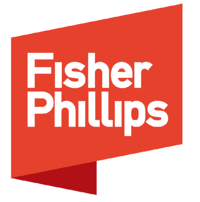READ TIME: 6 MINUTES
October 15 is just around the corner, so employers should already be planning to meet their annual Medicare Part D notice obligations. Under the Medicare Prescription Drug, Improvement, and Modernization Act of 2003 (MMA), employers that offer prescription drug coverage must notify Medicare-eligible individuals as to whether their prescription drug coverage is “creditable” or “non-creditable” for the upcoming calendar year. The Centers for Medicare and Medicaid Services (CMS) defines “creditable coverage” as prescription drug coverage that is actuarially equal to or greater than the prescription drug coverage provided under Medicare Part D.
Knowing a prescription drug plan’s creditable status allows an individual to make an informed choice whether to enroll in a Medicare Part D prescription drug plan. Moreover, an individual who does not have creditable prescription drug coverage and who does not elect Medicare Part D before the end of his or her initial Medicare enrollment period must pay higher premiums if they enroll later in Medicare Part D. So, knowing the creditable status of an employer’s drug coverage will help avoid costly penalties.
Disclosure to Individuals
For Medicare-eligible individuals to make informed and timely enrollment decisions, group health plan sponsors must disclose the status (creditable or non-creditable) of the plan’s prescription drug coverage before the annual Medicare enrollment period which begins October 15 each year.
Medicare Part D notices must be provided to all Medicare Part D eligible individuals who are covered under or who apply for a plan’s prescription drug coverage. The Medicare Part D notice is utilized to inform individuals about the plan’s prescription drug coverage status for the next calendar year.
A “Medicare Part D eligible individual” is an individual who:
- is entitled to Medicare Part A or enrolled in Part B as of the effective date of coverage under the Part D plan, and
- resides in the service area of a prescription drug plan or Medicare Advantage plan that provides prescription drug coverage.
Medicare Part D eligible individuals could include active employees, disabled employees, COBRA participants, retirees, as well as their covered spouses and dependents. Because employers usually do not know whether dependents are Medicare-eligible, the safest course is to distribute notices to all employees who are eligible to participate in a plan.
Notice Content
CMS has issued Model Part D notices for plan sponsors to disclose whether their plans’ prescription drug
coverage is creditable. Plans may use their own notices, but those substitute notices must include:
- A statement that the plan sponsor has determined that its prescription drug coverage is creditable or not creditable
- An explanation of creditable or non-creditable coverage
- A description of the beneficiary’s right to a notice
- An explanation of the coverage options available to beneficiaries
- An explanation of why creditable coverage is important and advice that, even though coverage is creditable, an individual could be subject to higher Part D premiums if the individual subsequently has a break in creditable coverage of 63 continuous days or longer before enrolling in a Part D plan
Part D Notice Delivery
CMS does not require an employer to send the notice separately. However, if an employer chooses to include it with other plan information, it must be placed on the first page or, alternatively, prominently referenced in at least 14-point font in a separate box, bolded or offset on the first page.
In most cases, one Medicare Part D notice to the covered Medicare beneficiary and all of their Medicare eligible dependents will suffice. However, if a plan sponsor knows that a Medicare-eligible spouse or dependent lives at a different address, the rules require a separate notice to the Medicare-eligible spouse or dependent at that address.
Electronic Delivery
CMS allows health plan sponsors to make electronic disclosures by following U.S. Department of Labor (DOL) electronic disclosure rules. Thus, if participants have access to an employer’s email system as part of their regular work duties, the employer can provide the notices electronically if certain other conditions are met. The rules for providing health plan notices and other documents electronically to employees without regular access to the employer’s email system are more complicated. Consequently, most plan sponsors mail required notices to such employees.
Notice Timing
Employers must provide Medicare Part D notices:
- before October 15 each year
- prior to an individual’s initial enrollment period for Part D
- in advance of the effective date of coverage for any Medicare-eligible individual who joins the plan
- whenever a plan’s prescription drug coverage ends or changes so that it ceases to be, or becomes, creditable
- upon a beneficiary’s request
Many plan sponsors also include a Medicare Part D notice in new hire packets and with other plan enrollment materials. This helps to be certain that Medicare-eligible individuals get timely notice as to their prescription drug coverage’s creditable status.
What’s Next?
Employers should determine whether their health plans’ prescription drug coverage is creditable for the upcoming calendar year and distribute Medicare Part D notices before October 15. Employers that distribute open enrollment materials prior to October 15 can include Medicare Part D notices with other required health plan notices. Employers with open enrollment starting October 15 or later will need to send a separate Medicare Part D notice before October 15.
This information has been prepared for UBA by Fisher & Phillips LLP. It is general information and provided for educational purposes only. It is not intended to provide legal advice. You should not act on this information without consulting legal counsel or other knowledgeable advisors.

